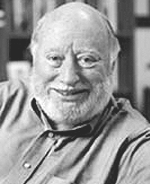| A
Different Way to Think about Accountability: No Drive-by Teachers
by
Lee S. Shulman
 It’s
hard to open the paper or turn on the radio these days without
finding yet another call for educational accountability. It’s
a reasonable thing to seek. The public needs to know that schools
and colleges are delivering on their promises to students and
to society. The problem is that the typical mechanisms for
ensuring quality (such as external tests or other measures
of some sort) often miss much of what actually goes on in classrooms. It’s
hard to open the paper or turn on the radio these days without
finding yet another call for educational accountability. It’s
a reasonable thing to seek. The public needs to know that schools
and colleges are delivering on their promises to students and
to society. The problem is that the typical mechanisms for
ensuring quality (such as external tests or other measures
of some sort) often miss much of what actually goes on in classrooms.
A
different way of looking at accountability is through the lens
of the classroom, where, after all, the proverbial rubber of
teaching and learning meets the educational road. Do we need
tests and state “report cards” to take the measure of education’s
effectiveness as an enterprise? Maybe. Do we need teachers
who see student learning and its improvement as their professional,
ethical responsibility? Absolutely.
What
is entailed in this responsibility? An analogy is helpful here.
Consider the story we read in the news at least once a year.
In one version, a passenger on an airplane experiences severe
chest pain, and the cabin attendant asks if there is a physician
on board. A physician comes forward and attempts to assist
the patient, but after several interventions the patient dies.
Subsequently, the family of the deceased sues both the airline
and the physician, the latter for malpractice. Had the physician
remained in her seat and withheld her professional service,
she would have been held harmless, no questions asked.
In
another version of the story, an auto accident leaves several
people by the roadside badly injured. A physician drives by
and decides not to stop and render medical assistance for fear
that he will be held responsible for any care he delivers.
Perhaps he had just read a news story about the first physician.
He is later criticized for inaction, for an unwillingness to
act professionally. Once a person or a community takes on the
mantle of a profession, every act is potentially permeated
with ethical questions.
My
point is that excellent teaching, like excellent medical care,
is not simply a matter of knowing the latest techniques and
technologies.
Excellence
also entails an ethical and moral commitment—what I might call
the “pedagogical imperative.” Teachers with this kind of integrity
feel an obligation to not just drive by. They stop and help.
They inquire into the consequences of their work with students.
This is an obligation that devolves on individual faculty members,
on programs, on institutions, and even on disciplinary communities.
A professional actively takes responsibility; she does not
wait to be held accountable.
Consider
the case of one of last year’s U.S. Professors of the Year
(a program co-sponsored by Carnegie and the Council for Advancement
and Support of Education). Dennis Jacobs is Professor of Chemistry
at the University of Notre Dame. Several years ago, teaching
the introductory course in his department, he found himself
face to face (often during office hours) with students who
were failing his course or dropping out.
This
was disturbing for a couple of reasons. For one, these students
were clearly bright and hardworking enough to succeed—but they
weren’t succeeding. Second, it was disturbing because failure
for many of them meant abandoning long-held dreams and career
aspirations.
Now,
in some chemistry departments, the student failure rate in
an introductory course is a badge of honor. But Jacobs was
having none of this. Feeling an ethical responsibility for
the success of his students, he designed an alternative approach
to the course, employing small-group study circles and an emphasis
on conceptual thinking. And then—this is an essential part
of the story—he set about to document the effectiveness of
this new approach. My colleagues and I at The Carnegie Foundation
for the Advance-ment of Teaching refer to this commitment as “the
scholarship of teaching and learning.”
Leaving
aside many of the details, Jacobs’s approach not only allowed
more students to succeed in meeting the chemistry department’s
high standards (far more students passed the course), it also
modeled a kind of professionalism that should be at the heart
of our ideas about educational accountability. Jacobs didn’t
just “drive by” when he saw what was happening to his students.
He stopped what he was doing and gave assistance. He took responsibility
for the quality of his students’ learning through his own innovations
and highly demanding assignments and tests.
Teachers
like Dennis represent a kind of teaching excellence that is,
admittedly, beyond what we find in lots of classrooms where
teachers are content to teach well and leave it at that. It’s
tempting to say it goes “beyond the call of duty,” but in fact
my point is just the opposite.
Teachers
must accept the ethical as well as the intellectual and pedagogical
challenges of their work. They must refuse to be drive-by educators.
They must insist on stopping at the scene to see what more
they can do. And just as is the case on airliners and freeways,
many of the needed resources may be lacking. Nevertheless,
they must seize responsibility. There is no more powerful form
of accountability.#
Lee
S. Shulman is the President of the Carnegie Foundation for
the Advancement of Teaching.

Education
Update, Inc., P.O. Box 1588, New York, NY 10159.
Tel: (212) 477-5600. Fax: (212) 477-5893. Email: ednews1@aol.com.
All material is copyrighted and may not be printed without express consent of
the publisher. © 2003.
|
